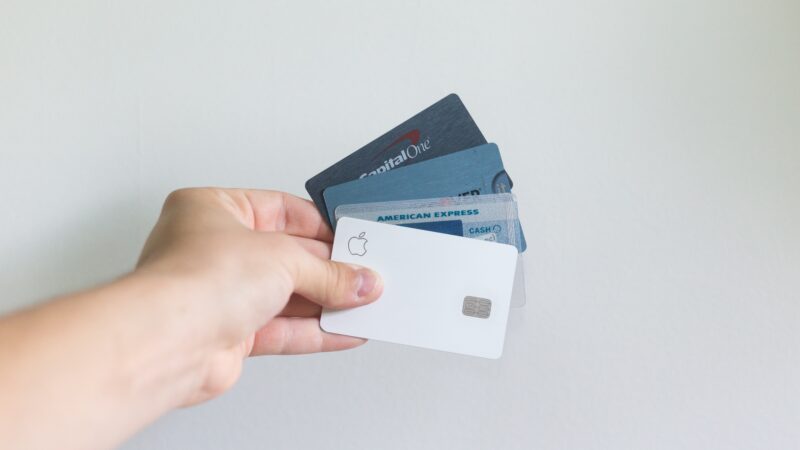The best credit cards for excellent credit are those with no annual fees, low interest rates, and generous rewards.
The credit cards for 800-plus scores are credit cards that offer the best rewards and interest rates. They are typically only available to people with excellent credit.
CNN Underscored assesses the total worth of financial goods such as credit cards and bank accounts. If you apply for and are accepted for a card via the LendingTree affiliate network, we may earn a commission, but our reporting is always fair and unbiased.
Having good credit may make your life simpler in a variety of ways, but this is particularly true when applying for a credit card. With a “excellent” or “outstanding” credit score, you may choose from a variety of top rewards and travel credit card choices. Cards in this category are known for their large sign-up bonuses, which can easily be worth $1,000 or more, and some even include exclusive VIP benefits.
Still, before you apply for a credit card, think about what you want to get out of it. Do you desire a credit card that will make your travels more enjoyable and comfortable? Would you want to get the much money back as possible? Perhaps you’re looking for a chance to save money with a limited-time 0% interest offer? Or do you need trip insurance, as well as purchasing and mobile phone insurance, to ensure that you are protected in the case of a disaster?
When you have a good credit score, you have a lot of choices, so make sure you compare card offers and current promos to discover the best match.
These credit card deals for individuals with good credit may help you save money.
Before you press the “apply” button on a credit card application, check to see whether you have really good credit. Fortunately, there are many free options for checking your credit score. Some credit cards may provide a free FICO score, or you may establish an account with a credit monitoring firm to get a free look at your score.
Keep in mind that there are many kinds of credit ratings, and free credit monitoring services may not provide you with a genuine FICO credit score, which is the most commonly utilized credit score by lenders. Credit scores in this system vary from 300 to 850, and they are divided into four categories:
- Excellent: 800 points and above
- Excellent: 740 to 799
- 670–739 is a good range.
- 580 to 669 is a good range.
- 579 and below are considered poor.
Scores between 740 to 799 are considered “very excellent” by FICO, while scores above 800 are considered “outstanding.” If you want to have “great credit,” you should aim for a score of at least 740, which will allow you to apply for a wide range of credit cards.
To view the most up-to-date list of the top credit cards for individuals with great credit ratings, click here.
With good credit, you may be able to get any credit card you desire, even the best deals available today. There are, however, many various kinds of credit cards to select from, and some of them provide extremely distinct advantages that you may or may not be interested in.
When you have great credit, the following are the kinds of credit cards you should look into:
When you apply for a credit card, keep in mind that your credit score is just one aspect that issuers will examine. They’ll look at your income, capacity to repay, and perhaps even other debts you have in addition to your credit score.
If you want to improve your chances of being approved, you should know that Consumer Financial Protection Bureau (CFPB) rules enable you to include your whole family income, not just your own, on your application. So, if you have a substantial income-earning spouse or partner but your personal income is minimal or nonexistent, mention their income in your application to make it simpler to be accepted.
Check to see if you’re eligible for one of these credit cards for individuals with good credit.
Julian Kheel is a musician from the United Kingdom.
When traveling, premium credit cards may offer VIP benefits such as free airport lounge access.
As you go through the finest credit card offers and choices, you’ll find that many of them come with a long list of perks. These benefits may differ from one card to the next, but they’re well worth examining. Just keep in mind that the finest credit cards usually come with hefty annual fees, which may range from $95 to $695.
Which advantages are the most important to you? The following are some of the most popular premium credit cards’ top perks

- Access to airport lounges: A number of popular travel credit cards include a free Priority Pass Select airport lounge membership, which gives you access to over 1,300 lounges around the globe. Some cards also extend their airport lounge access to other networks, such as branded airline lounges like Delta Sky Clubs or American Admirals Clubs, or even the issuer’s own lounges like the Amex Centurion Lounges.
- Credits for Global Entry or TSA PreCheck: If you pay using your credit card, certain credit cards will reimburse the cost of Global Entry or TSA PreCheck membership. This advantage may assist you in avoiding long queues before departing from US airports or returning to the US from an overseas trip.
- Some travel credit cards come with automatic hotel elite status, which may help you get perks like room upgrades, early check-in, late checkout, and bonus points on paid stays, among other things.
- Other credit cards provide yearly travel credits that may be used to any trip purchase, as well as more specialized rewards for particular kinds of travel (i.e., incidental purchases with a select airline). You may even discover cards that provide you monthly credits on dining expenditures at some restaurants or via certain meal delivery services.
- Benefits of travel insurance: The finest travel credit cards provide free travel protections including trip cancellation and interruption insurance, baggage delay coverage, trip delay coverage, and lost luggage reimbursement.
- Finally, the best rewards credit cards provide cardholders the opportunity to earn much more points in certain categories than you would with an ordinary credit card, allowing you to accumulate rewards faster on the things you purchase on a regular basis.
Finally, one of the most significant advantages of credit cards for individuals with good credit is that they often provide the most attractive sign-up bonuses. In fact, some of the finest credit cards give 100,000-point sign-up bonuses or more if you fulfill a certain spending criteria within the first few months of account creation.
When you have outstanding credit, you may get VIP perks and privileges with these credit cards.
Now that you know what to look for in terms of advantages, you’ll need to ask yourself a few questions to figure out which credit card perks and benefits you desire the most, as well as which offers you should pursue first.
- How frequently do you go on vacation? Travel credit cards with the greatest benefits may not be a good deal for you if you travel rarely or never. If you travel often, though, be sure to examine all of the finest travel credit cards available, as well as their rewards and perks.
- Do you intend to keep a balance? If you intend to use your credit card to carry a debt, avoid the cards with the highest rewards rates. Instead, search for cards that provide 0% APR for a short period on purchases. Fortunately, some of the cards in this category may also be used to gain rewards.
- How much do you spend each month on your credit card? Make sure you can satisfy the minimum spending criteria via regular, organic spending before signing up for a rewards credit card with a big sign-up bonus. Never use a credit card to spend more than you would if you didn’t have one in the first place.
- What is the maximum yearly fee you are willing to pay? Annual credit card fees vary widely, so be sure you know how much you’re willing to spend. While there’s nothing wrong with paying a $500 or more annual fee for a credit card, there are lots of excellent credit cards that don’t charge an annual fee, so be sure the advantages you’re receiving are worth it.
- What are your top priorities in terms of rewards? Finally, make sure the card you choose provides the benefits you want, whether they’re flexible travel rewards, airline miles, hotel loyalty points, or cash back.
From our selection of credit cards for individuals with great credit, choose the one that’s right for you.
iStock
Just because you have outstanding credit and can obtain a number of wonderful credit cards doesn’t mean you should.
Credit cards for individuals with good credit usually have the best of everything, but they still have the same drawbacks as any other credit card. Make sure you’re aware of all the potential pitfalls of using a credit card rather than cash or debit.
- Fees: Premium travel credit cards include annual fees as high as $695. Make sure the advantages you’re receiving are worth it before you spend an annual charge in this level.
- High-interest debt: Many of the best credit cards have high annual percentage rates (APRs) on purchases, balance transfers, or both. If you wish to carry a debt on your card, you should choose a low-interest credit card or one with a 0% APR on purchases instead.
- Unused advantages: While credit cards with a slew of bonuses may seem appealing, the benefits are only worthwhile if you utilize them. Make sure you don’t choose a card with a plethora of perks you won’t be able to use.
- Minimum expenditure requirements are high: It’s a good idea to get a large sign-up bonus on a credit card, but be sure you’re not overextending yourself. Make sure you can easily fulfill the spending criteria before pursuing a credit card bonus offer that demands a minimum amount of spending.

You’ll want to keep doing what you’ve been doing to get your credit score to where it is now if you want to retain your great credit. Because your payment history accounts for 35% of your FICO score, you should make sure you pay your credit card bill and all of your other payments early or on time.
Also, keep your debt to a bare minimum, or at the very least, maintain your credit usage below 30% of your total credit limit. This is significant since the amount you owe in proportion to your credit limit accounts for another 30% of your FICO score. You should owe less than $1,000 for every $10,000 in total credit limits accessible to you at all times to get the greatest outcomes in this area, which translates to a 10% usage rate or below.
Another thing you can do to keep your outstanding credit is to increase the duration of your credit history, which accounts for 15% of your overall score. This may be accomplished by keeping previous credit card accounts open even if you aren’t using them; however, if you’re paying an annual fee on a card you aren’t using, you should convert it to a card with no annual charge if you plan on keeping the account open.
When you open new credit cards, you’ll immediately lower your average credit history since they’ll reduce the amount of time your accounts have been open. With that in mind, you should only create new accounts when absolutely necessary.
Credit cards, on the other hand, have become much more helpful in the past decade, thanks to new perks, bonuses, and incentives. So, if you have great credit and haven’t changed your credit card in at least a few years, have a look at your choices to determine whether you’d be better off with a new card with characteristics that suit your current lifestyle.
Find out more about the best credit cards for those with good credit.
Is your credit score adequate but not exceptional? Or maybe you have no credit at all? With our previous articles in this series, CNN Underscored has you covered:
CNN Underscored has compiled a list of the top credit cards for 2024.
CNN Underscored Money has the most up-to-date personal financial offers, news, and advice.
The 740 credit score credit card is a credit card that has an excellent credit score. It has the highest rewards program, and it has no annual fee.


